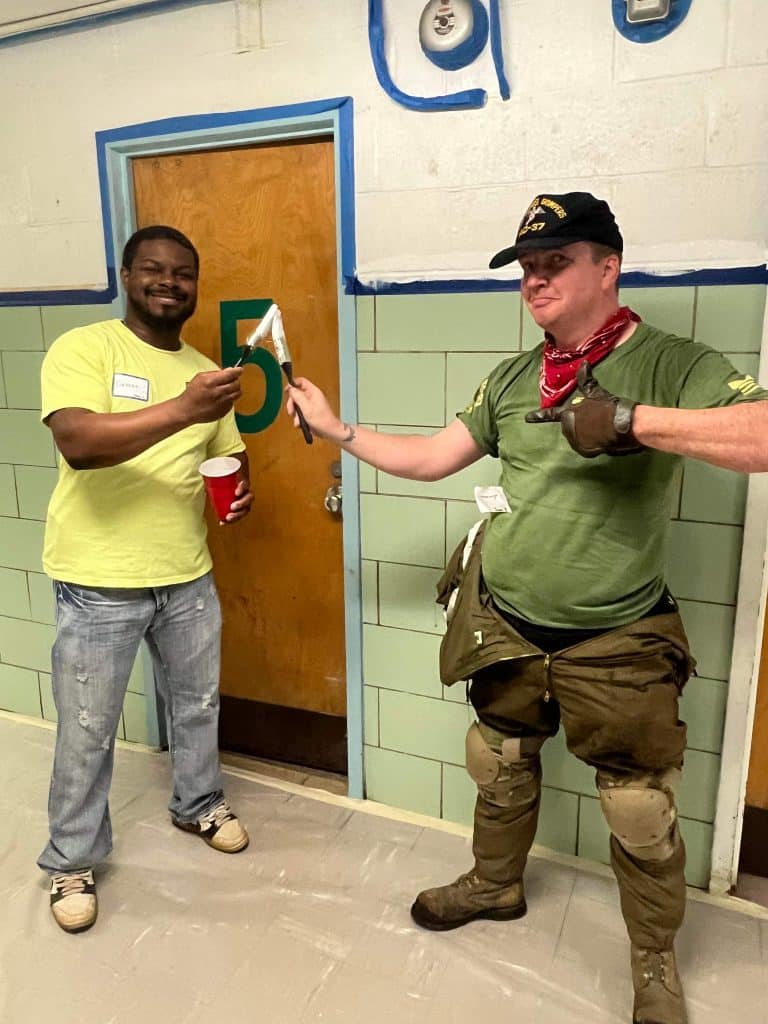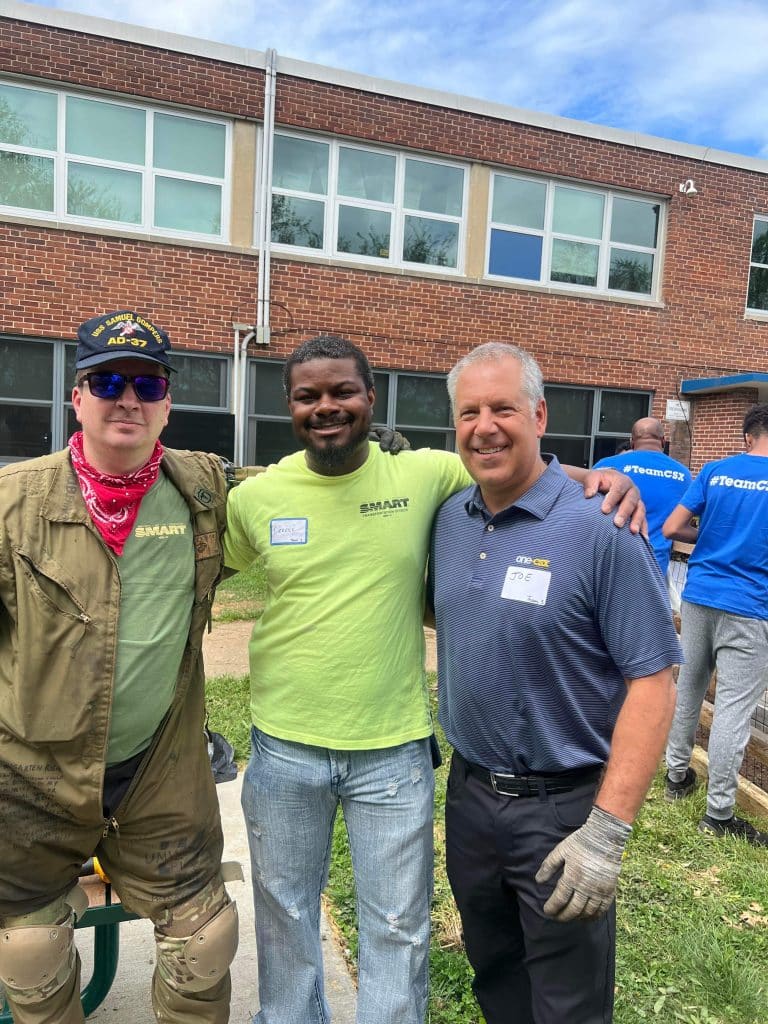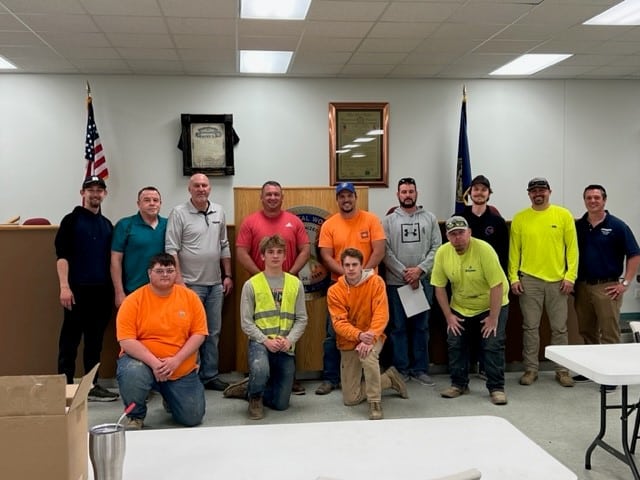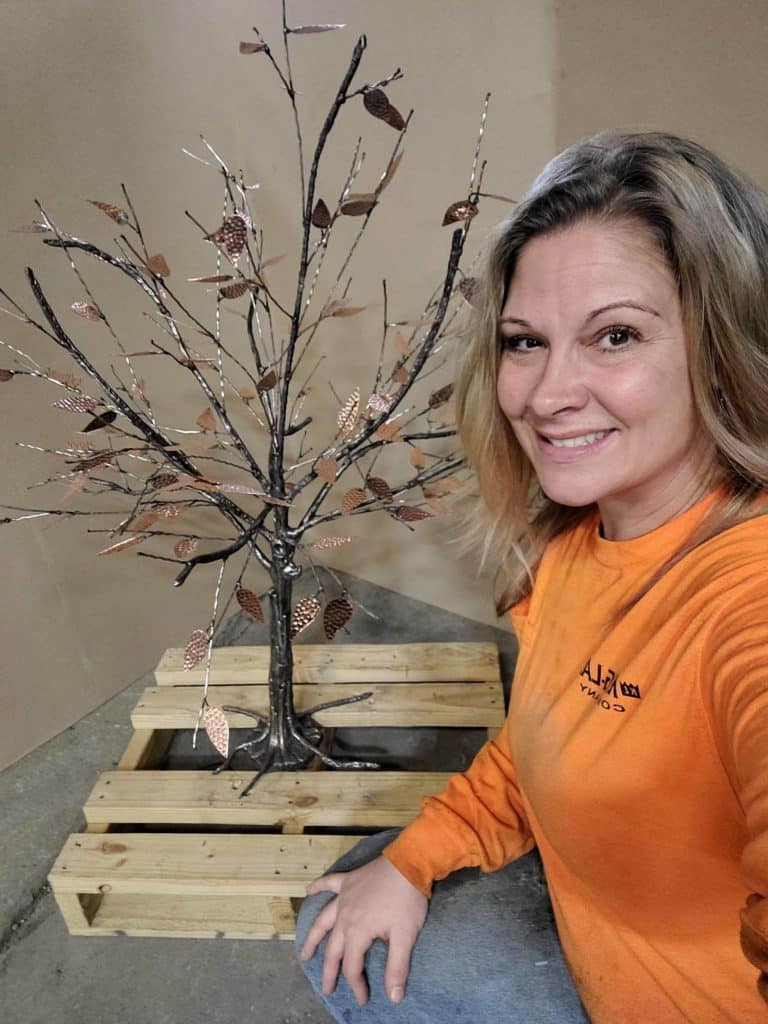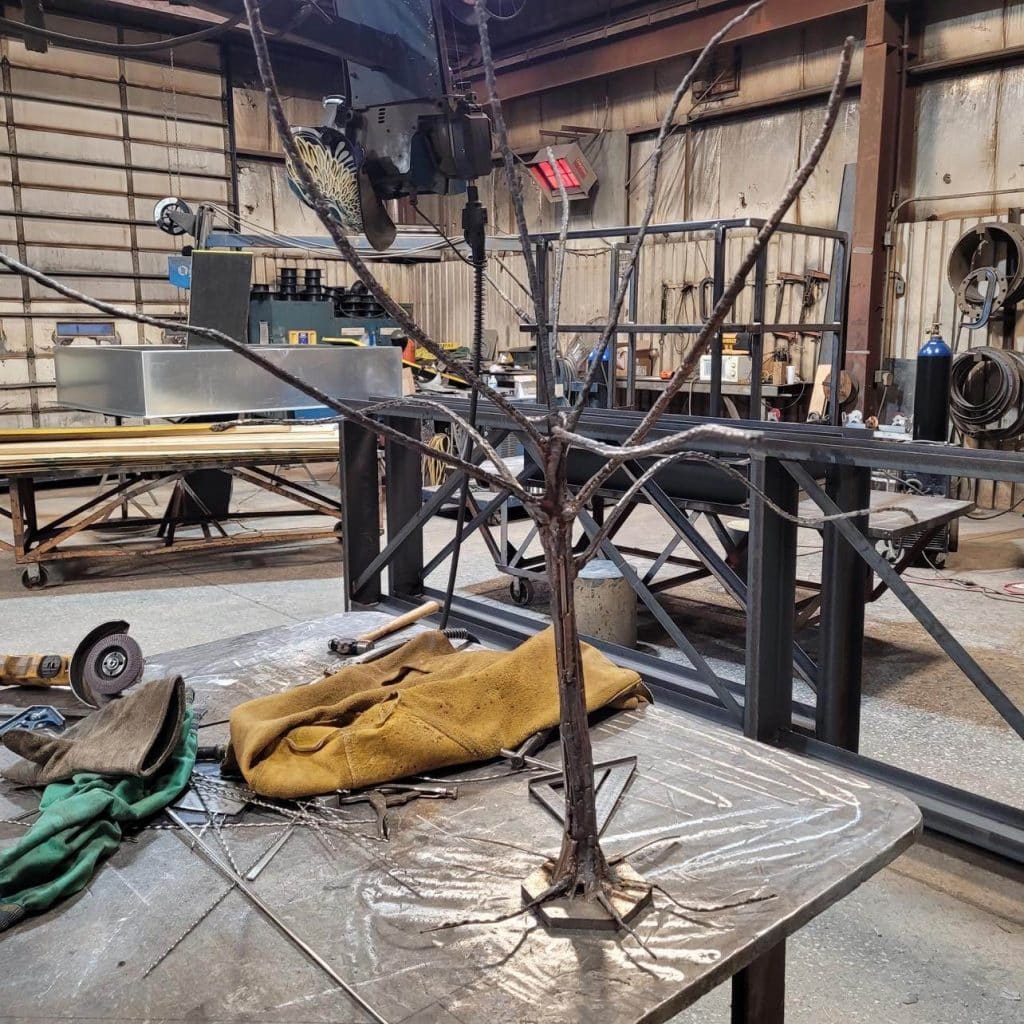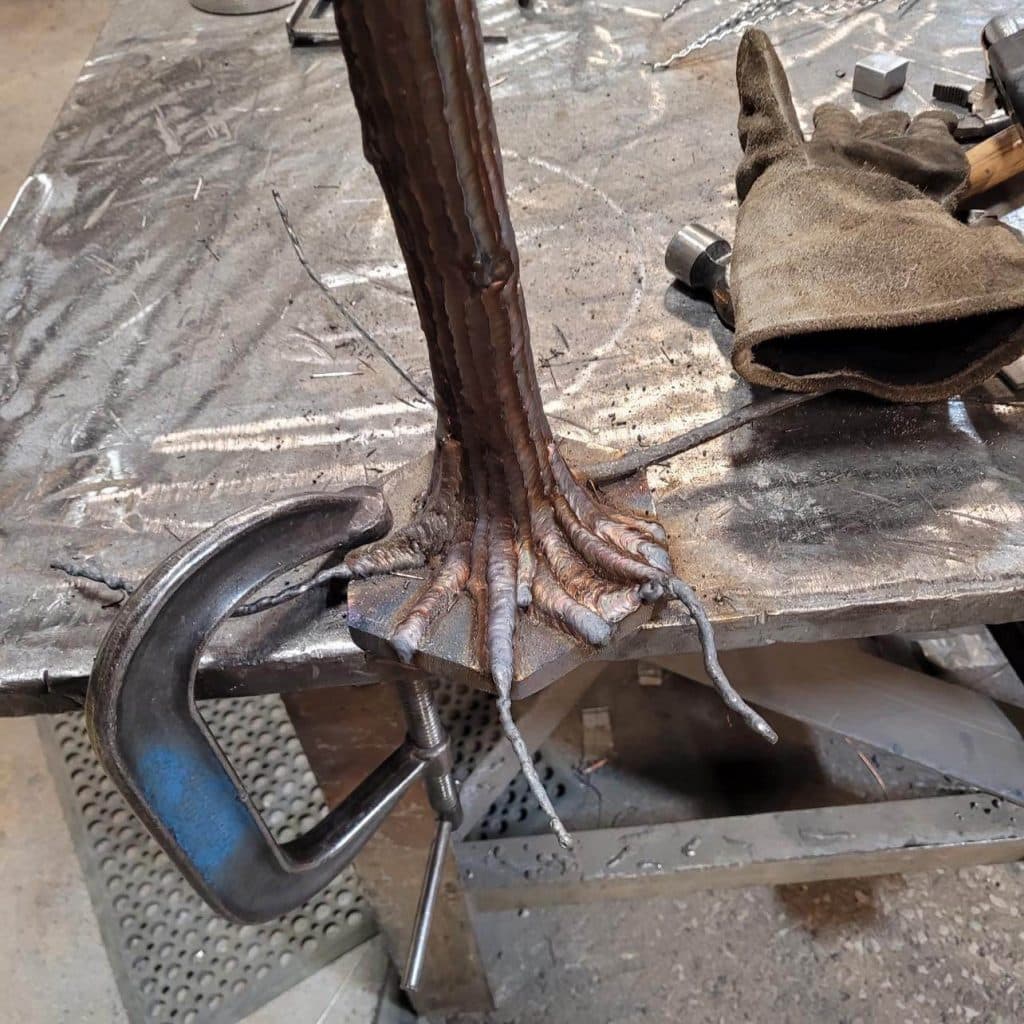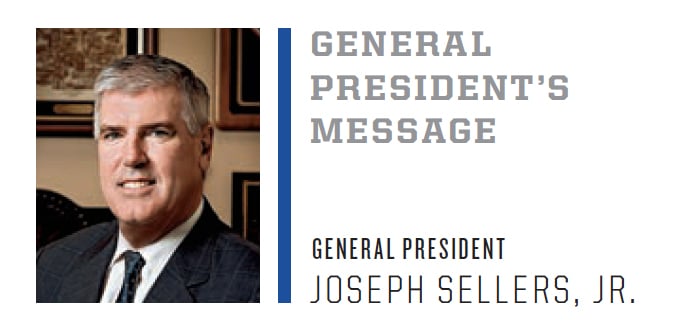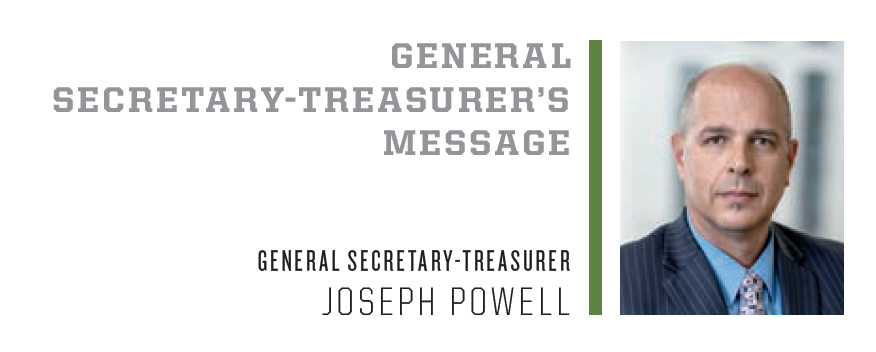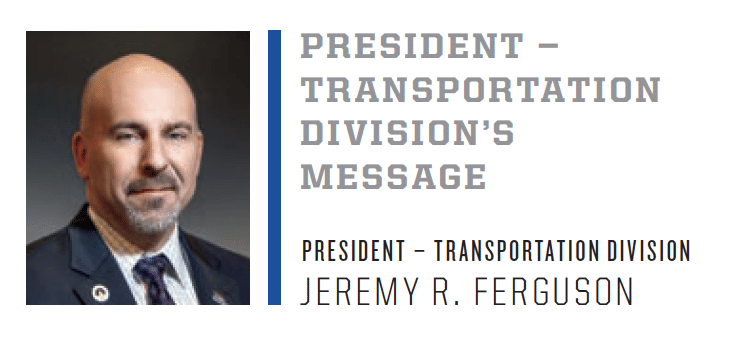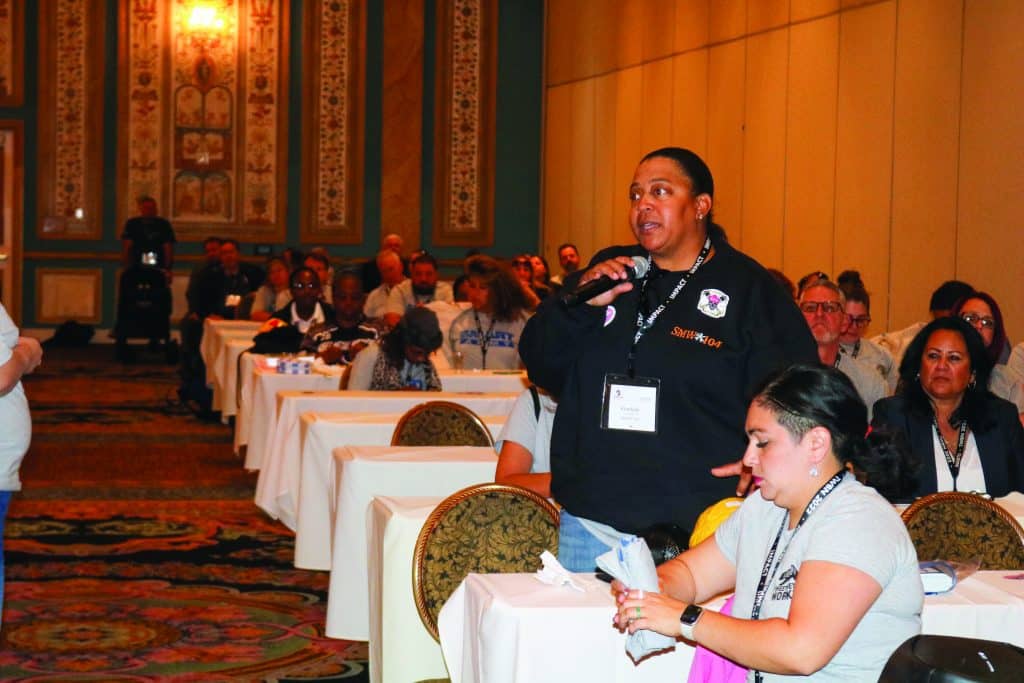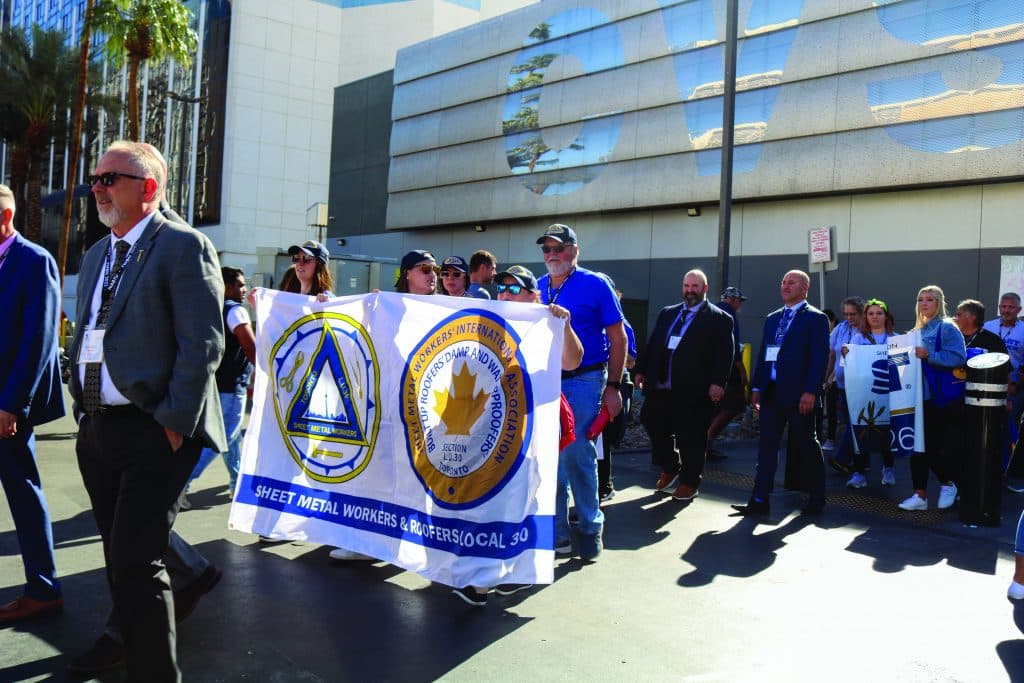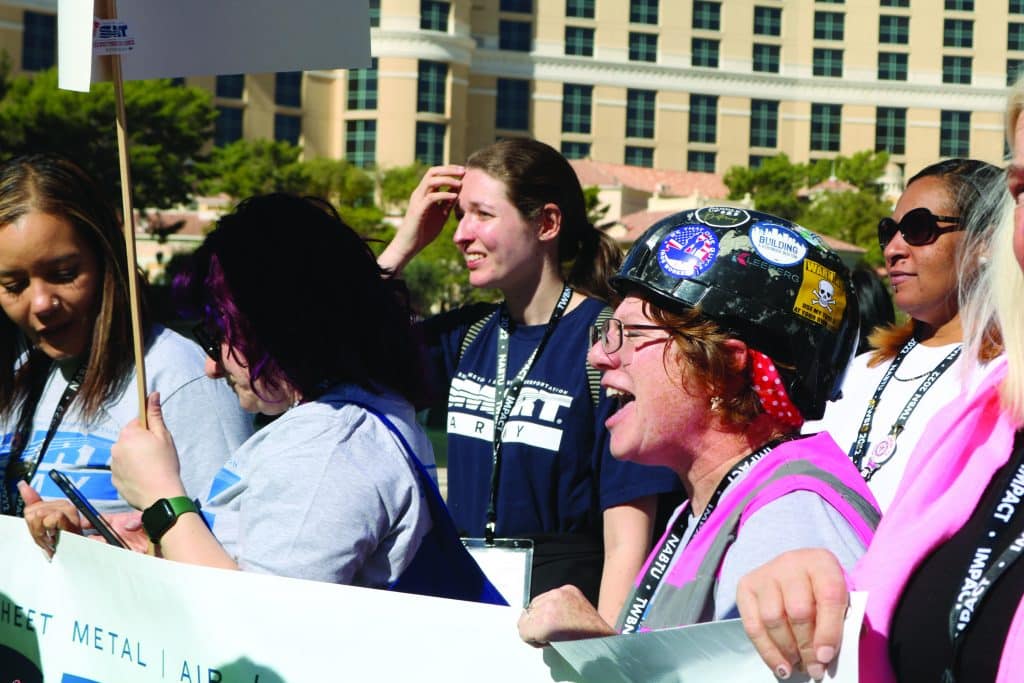June is an important month for SMART: It marks 18 months since the launch of the Belonging and Excellence for All (BE4ALL) effort. This represents a significant milestone for our organization. It underscores our commitment to creating environments where all workers feel seen and heard, and where they know that they belong.
BE4ALL launched in December 2021 with a stated vision: to create a diverse, inclusive and unionized sheet metal industry that is welcoming and fosters belonging for all. Three organizations — SMART, SMACNA and ITI — guide the work of the initiative. Each is represented on the joint BE4ALL Committee, which includes members appointed by General President Joseph Sellers.
Eighteen months later, we have a lot to report. Here are a few highlights:
BE4ALL 2023 Calendar
BE4ALL launched its first calendar in January 2023. The calendar is a tool for members, employees and colleagues to learn more about the different cultures and faiths that make up our industry. Local unions and employers have been asked to post the calendar in a public space, such as a break room, lunchroom or community meeting area. The hope is that the calendar will spark conversation about the diverse cultures and lived experiences reflected in our industry.
Bathroom Kits
Through the International Training Institute (ITI), BE4ALL has distributed hundreds of bathroom kits to JATCs across the country. The kits are the result of apprentices pointing out the absence of menstrual products in local training facilities. As General President Sellers stated in a recent letter to JATC co-chairs, trustees and coordinators, providing menstrual products “creates a better learning environment” and lessens “potential stress.” In the future, the goal is for the kits to be present across the industry.
Bias and Belonging Training
BE4ALL has rolled out a new training program called Bias and Belonging. The program seeks to raise awareness about ways that implicit bias — stereotypes that we are not aware that we have, and that may lead to unintentional harm — impacts our day-to-day decisions. The training also offers evidence-based tools and strategies for how workers can reduce and interrupt their implicit biases. To date, more than 100 JATC coordinators and instructors have been trained. For 2023, the plan is to expand the training to the broader membership.
Toolbox Talks
The BE4ALL initiative recently launched BE4ALL Toolbox Talks. The first “talk” focused on Being a Good Crewmate and offered concrete tips for how to support coworkers and colleagues. Ideas included teaching people how to use tools and equipment properly, as well as checking in on your teammates and their well-being. Upcoming Toolbox Talks will be published every other month.
Learning Journeys
Another key accomplishment has been the BE4ALL Learning Journey program. These are 90-minute virtual workshops aimed at raising awareness about issues and topics important to our industry, including events of historical and cultural importance to our membership. To date, BE4ALL has conducted seven Learning Journey sessions. These sessions have focused on mental health awareness, Pride Month, Indigenous Peoples’ Day, Hispanic Heritage Month and Black History Month, just to name a few.
This year, BE4ALL will host its second Juneteenth Learning Journey and will introduce other activities in observance of this important date in history.
What is Juneteenth?
On January 1, 1863, President Abraham Lincoln issued the Emancipation Proclamation, declaring freedom for those who were enslaved. This did not immediately end slavery in the United States, but it did transform the Civil War, as every advance of federal troops expanded the range of freedom.
Two years after the Emancipation Proclamation, on June 19, 1865, 2,000 federal troops arrived in Galveston Bay, Texas. The 250,000 enslaved people in the state of Texas began to learn of their freedom – and of the end of the war. The day became known as “Juneteenth” by the newly freed people of Texas, and honors the end of slavery in the United States.
Juneteenth is considered the longest-running holiday for Black Americans. In 2021, President Biden proclaimed June 19th to be a federal holiday. In his 2021 proclamation, President Biden said: “On Juneteenth, we recommit ourselves to the work of equity, equality, and justice. And we celebrate the centuries of struggle, courage, and hope that have brought us to this time of progress and possibility.”
The observance of Juneteenth is not just for Black Americans, but for the entire nation. Renowned historian Henry Louis Gates, Jr. said of Juneteenth: “For a country built upon the love of freedom, any manifestation of the enjoyment of freedom should be celebrated by all our countrymen.”
Celebrations may include:
Attending Juneteenth celebrations in your community
- Learning more about the history of Juneteenth and sharing that history with family and peers
- Visiting museums and commemorative sites that honor the history of African Americans
- Hosting or sponsoring guest speakers and/or educational opportunities
- Supporting Black history organizations and Black-owned businesses
Call To Action: To receive regular BE4ALL text or email updates, text “BE4ALL” to 67336 (message and data rates may apply).

